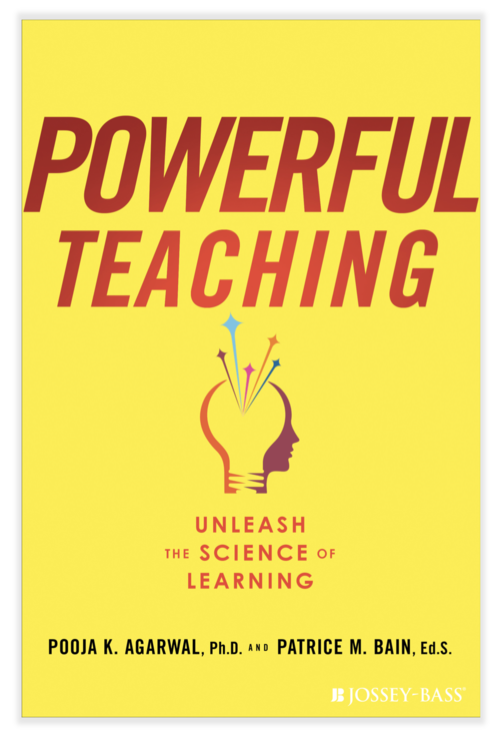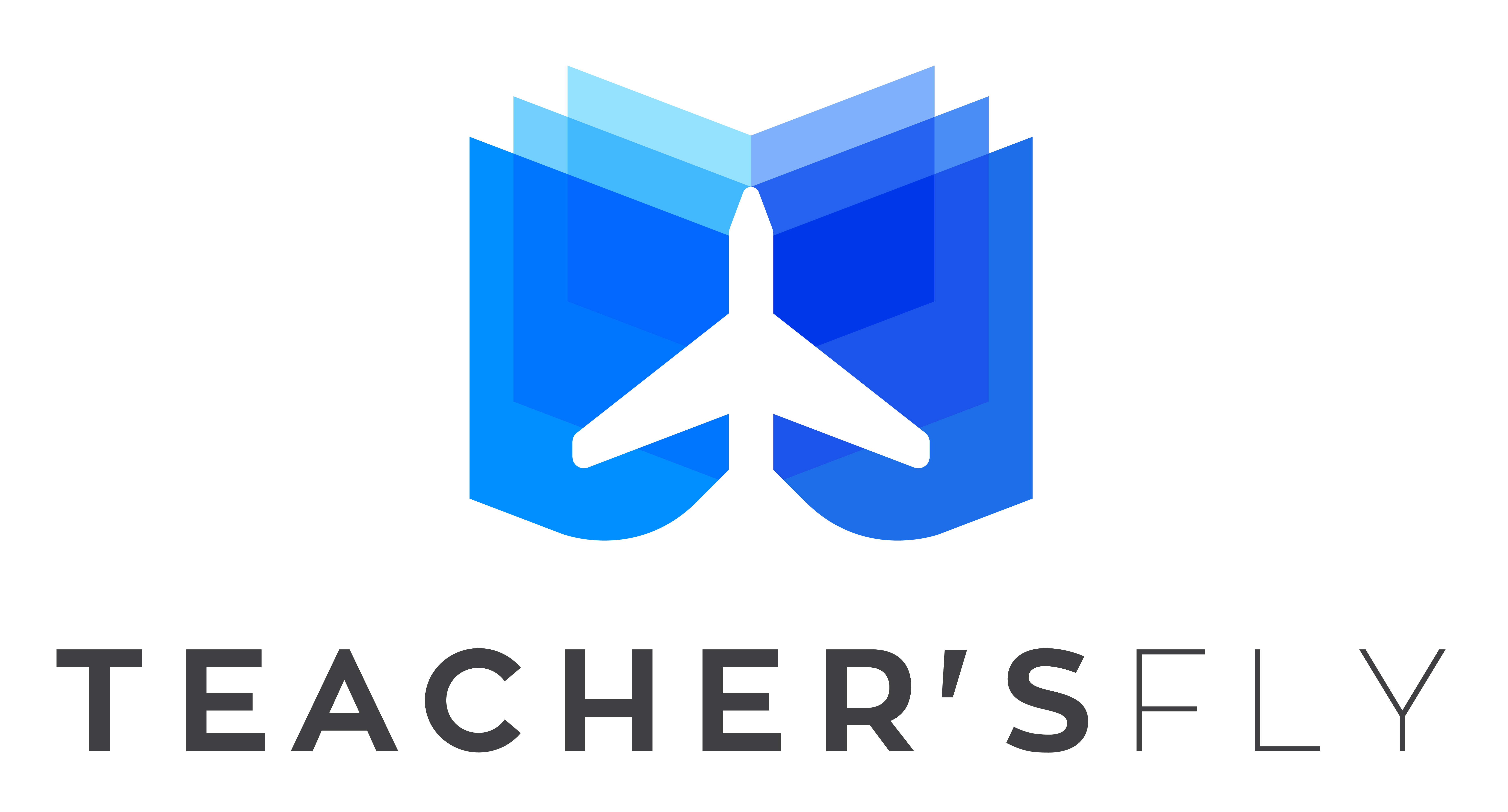
15 Oct Retrieval practice, CBE, and what we value regarding student learning
 A number of educators across the country are finding great value in ‘learning science’ books such as Powerful Teaching: Unleash the Science of Learning. In Powerful Teaching, the authors focus on the potential of:
A number of educators across the country are finding great value in ‘learning science’ books such as Powerful Teaching: Unleash the Science of Learning. In Powerful Teaching, the authors focus on the potential of:
- Retrieval practice – “pulling information out of students’ heads (e.g., quizzes and flashcards), rather than cramming information into students’ heads (e.g., lectures)” (p. 4);
- Spaced practice – “spreading lessons and retrieval opportunities out over time” (p. 4);
- Interleaving – “mixing up closely-related topics and encouraging discrimination” (e.g., “when students practice addition, subtraction, multiplication, and division problems all mixed up, rather than one type of problem at a time;” p. 5); and
- Feedback – “providing [students] the opportunity to know what they know, and know what they don’t know” (p. 5).
There’s nothing inherently wrong with retrieval practice, spaced practice, and interleaving. These educational practices can be powerful tools for information retrieval. But we also have to ask ourselves the tougher question of ‘Retrieval practice, spaced practice, and interleaving OF WHAT?’ Is the information worth knowing and spending time on in the first place? For instance, in the retrieval practice challenge grid below [intentionally anonymized], many of us could argue that most of the things being ‘retrieved’ to allegedly enhance student ‘learning’ aren’t really worth learning at all, much less remembering later.

On another educational front, many advocates of competency-based education (CBE) are working diligently to create ‘high reliability’ school structures. This work often involves extremely sophisticated proficiency scaling of desired learning outcomes, student leveling diagnostics, and individualized instruction and student interventions. Here is an example third grade mathematics proficiency scale [intentionally anonymized]:

And, once again, we have to ask ourselves the tougher question of ‘Proficiency scaling and student leveling ON WHAT?’
In Future Wise: Educating Our Children for a Changing World, David Perkins noted that “the achievement gap is much more concerned with mastering content than with providing lifeworthy content. . . . The achievement gap is all about doing the same thing better… [In contrast,] the relevance gap asks us to reconsider deeply what schools teach in the first place” (pp. 30-31). Accordingly, a couple of questions that we might ask ourselves as educators include:
- In our learning science and competency-based educational work, are the desired student outcomes that we’re emphasizing just low-level content or are they lifeworthy content?
- If we’re going to ask our students to ‘retrieve’ and ‘interleave’ their learning weeks and even months later, can it at least be knowledge and skills that are worth remembering?
There are at least two potential dangers as schools and educators move in these ‘high reliability’ directions:
- Schools will continue to reinforce, strengthen, and reinscribe their typical emphases on standardized, low-level learning at the expense of more lifeworthy knowledge and skills, particularly for traditionally-marginalized students.
- By doing so, schools will continue to reduce kids to proficiency scales, score reports, and individualized, dehumanized, numerical widgets in mechanistic, technocratic educational systems. Rather than being agents of their own learning and active, hands-on meaning-makers, students are passive recipients of processes and outcomes that are imposed on them in the name of ‘reliability.’
Both of these practices contribute to students’ learning apathy, boredom, disengagement, perceived lack of relevance in what they’re learning, and dropout rates (both physically and mentally).
Even Daniel Willingham, who, as a cognitive psychologist, is a tremendous advocate for brain-based learning and background factual knowledge, asked in Why Don’t Students Like School?, “When is it appropriate to ask students to memorize something before it has much meaning? Probably not often…” (p. 64). Willingham also reiterated that “We remember much better if something has meaning” (p. 33) and that “Repetition is good for learning but terrible for motivation” (p. 1). In other words, we have to focus on creating learning experiences that are meaningful to students, not just in a school-y ‘you need to know this for the test’ sense or in a ‘do this or you will be punished academically or behaviorally’ sense but rather in a ‘you need to know this for life’ sense. We know that most students – even successful ones – are really struggling to find meaning in most of the learning tasks that we put before them.
Willingham also stated:
Students can’t learn everything, so what should they know? Cognitive science leads to the rather obvious conclusion that students must learn the concepts that come up again and again – the unifying ideas of each discipline [emphasis added]. Some educational thinkers have suggested that a limited number of ideas should be taught in great depth, beginning in the early grades and carrying through the curriculum for years as different topics are taken up and viewed through the lens of one or more of these ideas. From the cognitive perspective, that makes sense [emphasis added]. (p. 37)
Are our school systems focusing on big important concepts or just trivia and minutiae as they engage in learning science and competency-based educational practices?
Some may wonder if it is even possible to engage in learning science and competency-based educational practices for so-called ‘deeper learning.’ The authors of Powerful Teaching do say that “these strategies apply for … critical thinking” (p. 5). However, the vast majority of the examples that they use in the book pertain to students remembering something that they read earlier, answering exam questions, taking notes, engaging in mini-quizzes, regurgitating back what they heard from a teacher, and similar, extraordinarily traditional educational practices. Higher-level thinking examples and discussions of real world thinking, application, and problem-solving are scarce in the book (as they are in our larger, societal-level conversations about ‘learning loss’ during the pandemic). The language that the authors use in the book to introduce their key concepts also emphasizes lower-level learning (e.g., practicing math problems, quizzes, flashcards, teacher lectures, and so on).
Of course students need to have factual knowledge and procedural fluency. But those aren’t enough in today’s global, innovation society (and arguably never were). Some of our lower-level student learning outcomes are important and many are less so, particularly when viewed through the lens of ‘lifeworthy content.’ But how we get there is always up for negotiation. Learning modality matters A LOT. It would be really easy to shove kids in front of a bunch of worksheets or homework packets or transmission-regurgitation / individualized-progression / box-checking software systems and say that students are achieving ‘mastery’ of supposedly ‘important’ knowledge and skills. We can see the allure of that for a large number of school leaders or policymakers. Be cognizant of that seduction, because it’s a student soul-sucking idea that’s been floating around in education for many, many decades. And vendors will be quite happy to take your money and sell this to you.
As I said in a recent keynote, I absolutely adore the idea of ‘high-reliability schools.’ But we need to make sure that our definition of ‘high reliability’ includes deeper learning opportunities and outcomes, not just the low-level learning that we’ve traditionally spent most of our time on in P-12 schools. One last time: students aren’t going to recall and regurgitate their way into 21st century life success.
I know that deeper learning networks like Big Picture Learning, New Tech Network, and High Tech High are trying to figure out what ‘high reliability’ looks like in the deeper learning context, as are the schools featured in our recent book, Leadership for Deeper Learning. The work that these students and educators are doing is incredibly complex and even more inspiring. It’s relatively easy to come up with pedagogical and data systems that help students recall and regurgitate a little better. It’s much more difficult to create educational systems that develop successful, problem-solving humans. I would encourage all of us to think pretty deeply about this: not just about how to make existing technocratic systems even more technocratic, but about what it means to be educated and successful over the next few decades.
Your thoughts? How are you reconciling learning science and competency-based educational principles with deeper learning?
Related Posts
A number of educators across the country are finding great value in ‘learning science’ books such as Powerful Teaching: Unleash the Science of Learning. In Powerful Teaching, the authors focus on the potential of: Retrieval practice – “pulling information out of students’ heads (e.g., quizzes and flashcards), rather than cramming information into students’ heads (e.g., lectures)”
 Learning and Teaching, learning, teaching, visionRead More
Learning and Teaching, learning, teaching, visionRead More

Sorry, the comment form is closed at this time.